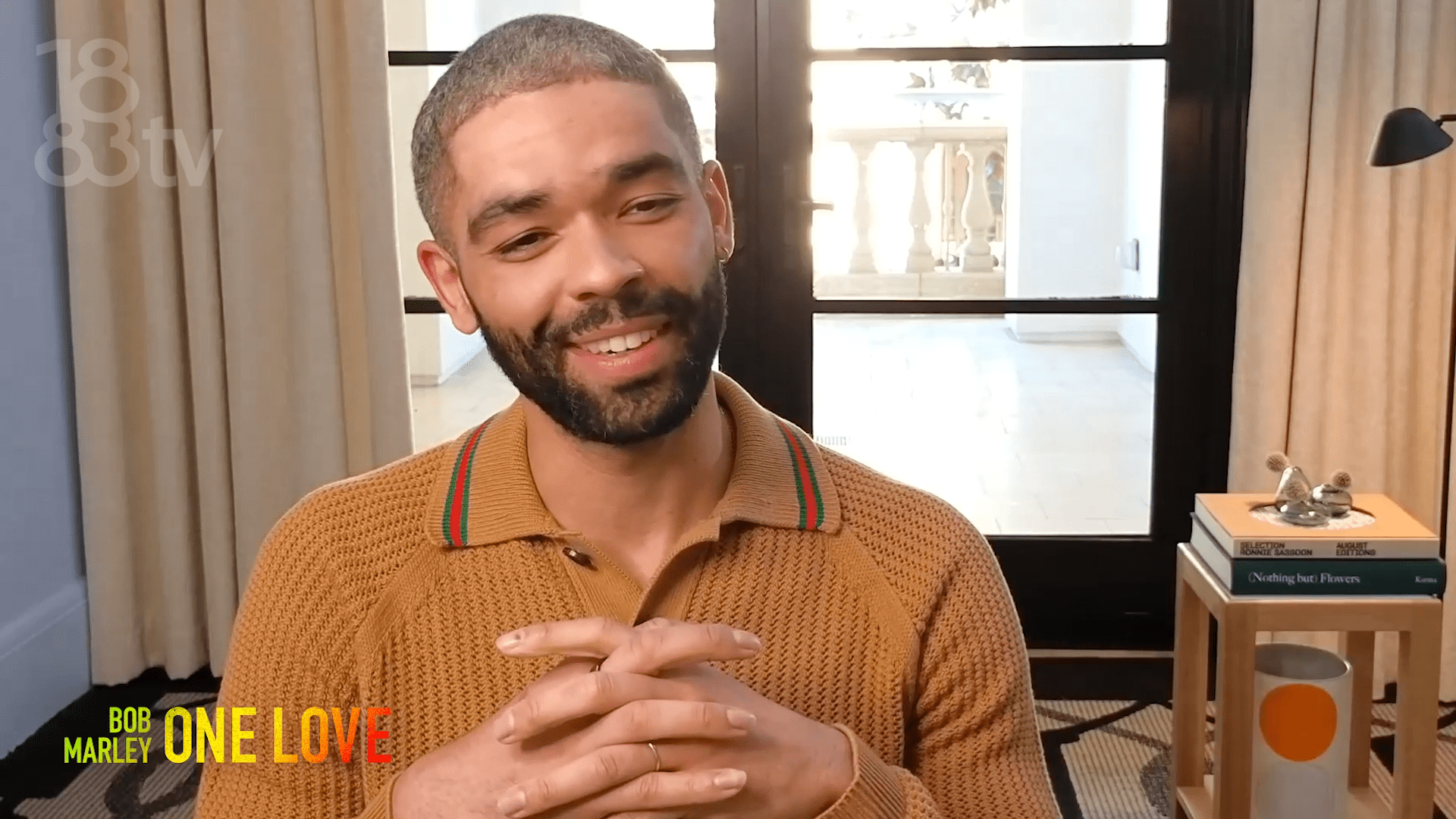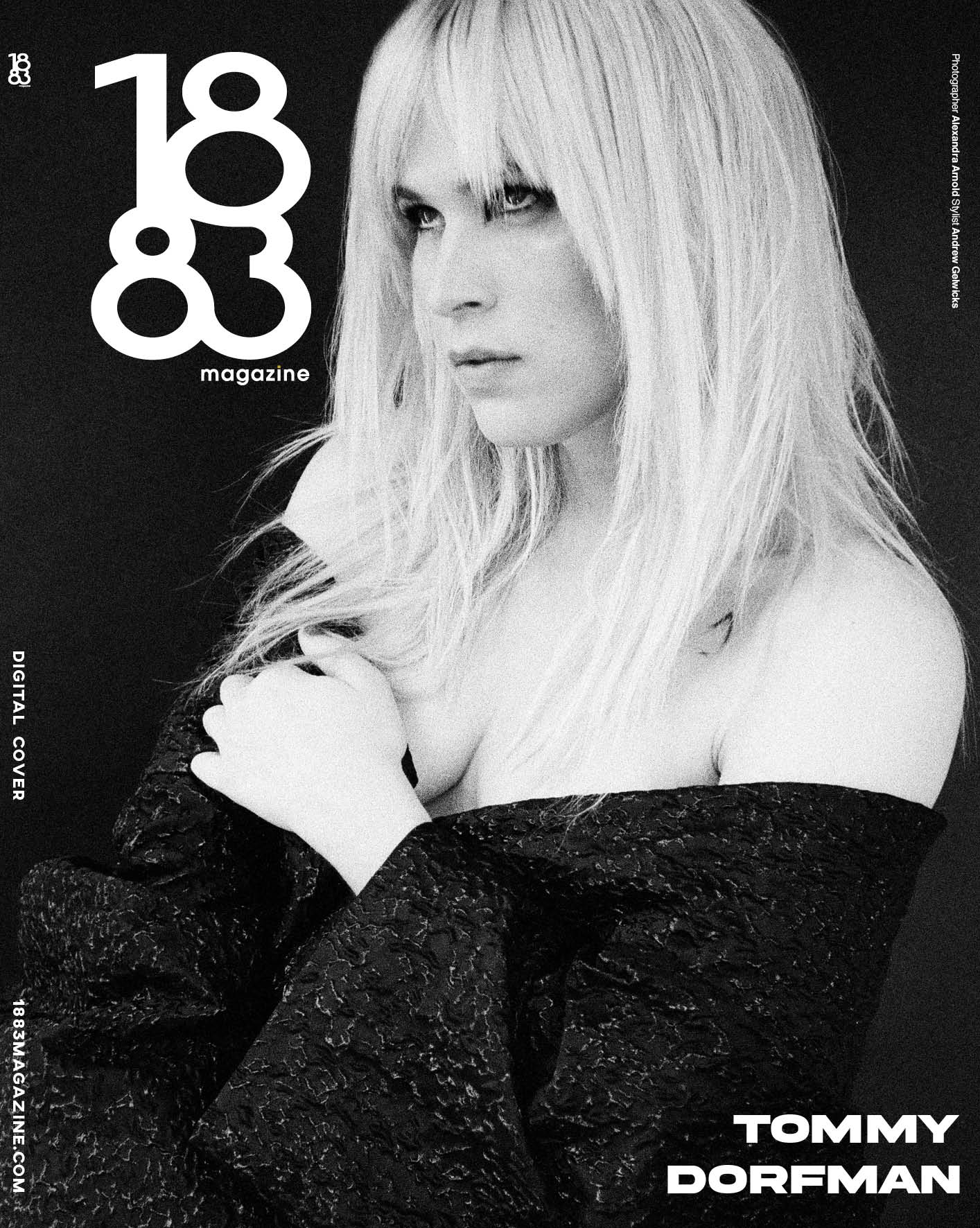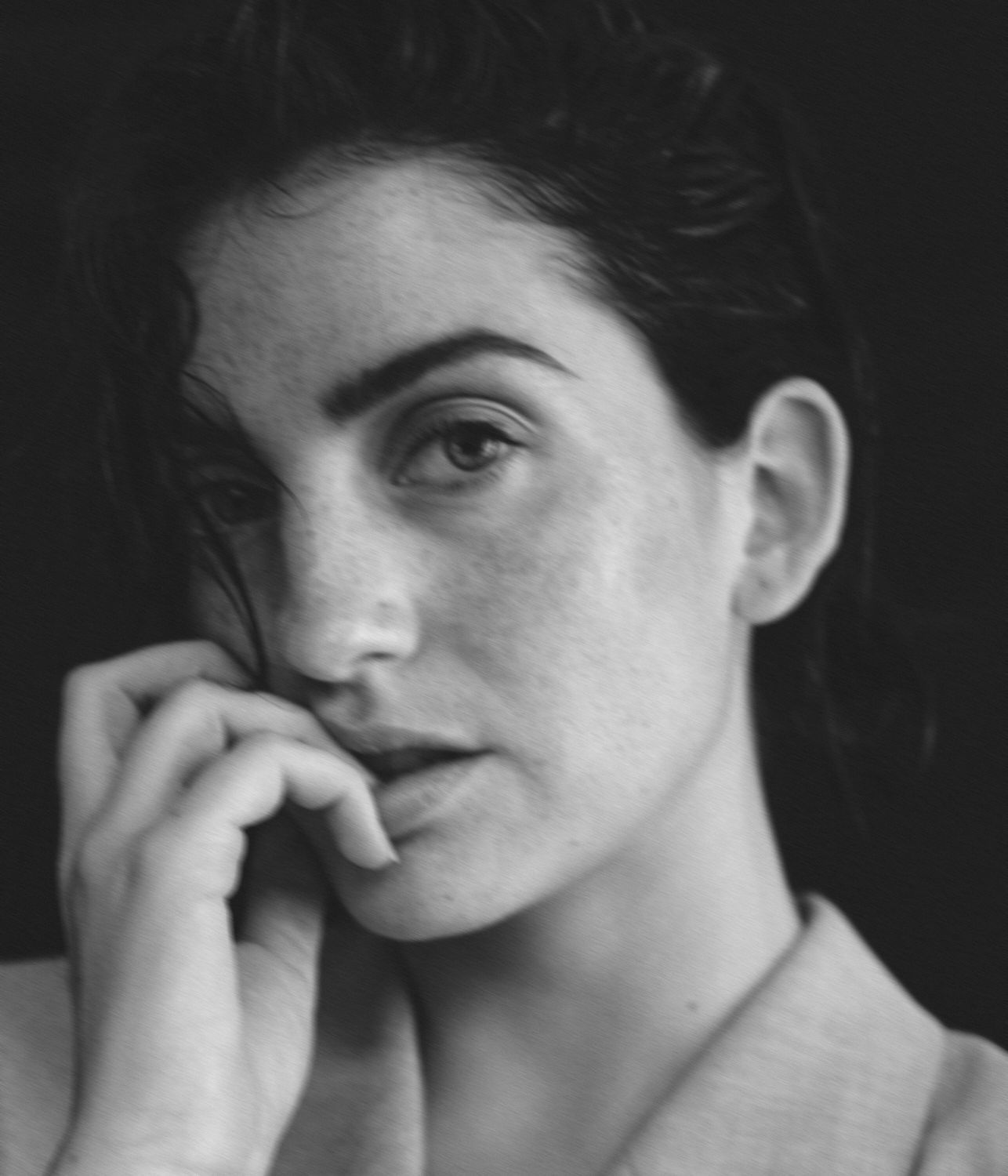
India Mullen
India Mullen is perhaps best known for her role as Peggy in Normal People, the mesmerizing television adaptation of Sally Rooney’s beloved novel. Now, the Irish actress is poised to electrify audiences even further with brilliant performances in Brassic and beyond.
One of the most rewarding aspects of journalism is being afforded the opportunity to speak with people you truly admire. India Mullen first captured my attention with her beguiling performance in the BBC Three/Hulu adaptation of Normal People. Mullen plays Peggy, a friend to main character Marianne, played by Daisy Edgar-Jones, after the two meet at Trinity College. The character is a unique study in authenticity—as Mullen keenly describes during our conversation, the audience doesn’t know what to think of Peggy because Peggy doesn’t know what to think of herself.
It is this captivating duality of temperament that drew Mullen to the role when she first received the script, and it is her talented portrayal of Peggy’s struggle to understand herself that makes the character so memorable. The two of us spoke at length about Normal People, both the novel version and the television adaptation she starred in, which sparked a deeper discussion of who we are as human beings and how we learn to interact with others. We also touched upon Mullen’s upcoming part in the show Brassic, a British comedy series that strays from the emotional atmosphere she was immersed in for the filming of Normal People.
Mullen is enthusiastic, intellectual, and exceptionally kind. We ended up discussing a variety of additional topics, including astrology, vulnerability, photography, and the importance of being emotionally intelligent. It was a delightful privilege, as I had admired Mullen’s acting prowess and photography skills from afar before we sat down to chat via Zoom. After our conversation I realized my admiration had led me to a kindred spirit, which made the experience that much sweeter.
1883 Magazine spoke with actress India Mullen about what it’s like to portray a Sally Rooney character on screen, her upcoming role in Brassic, which films and shows have inspired her most the past year, and much more.
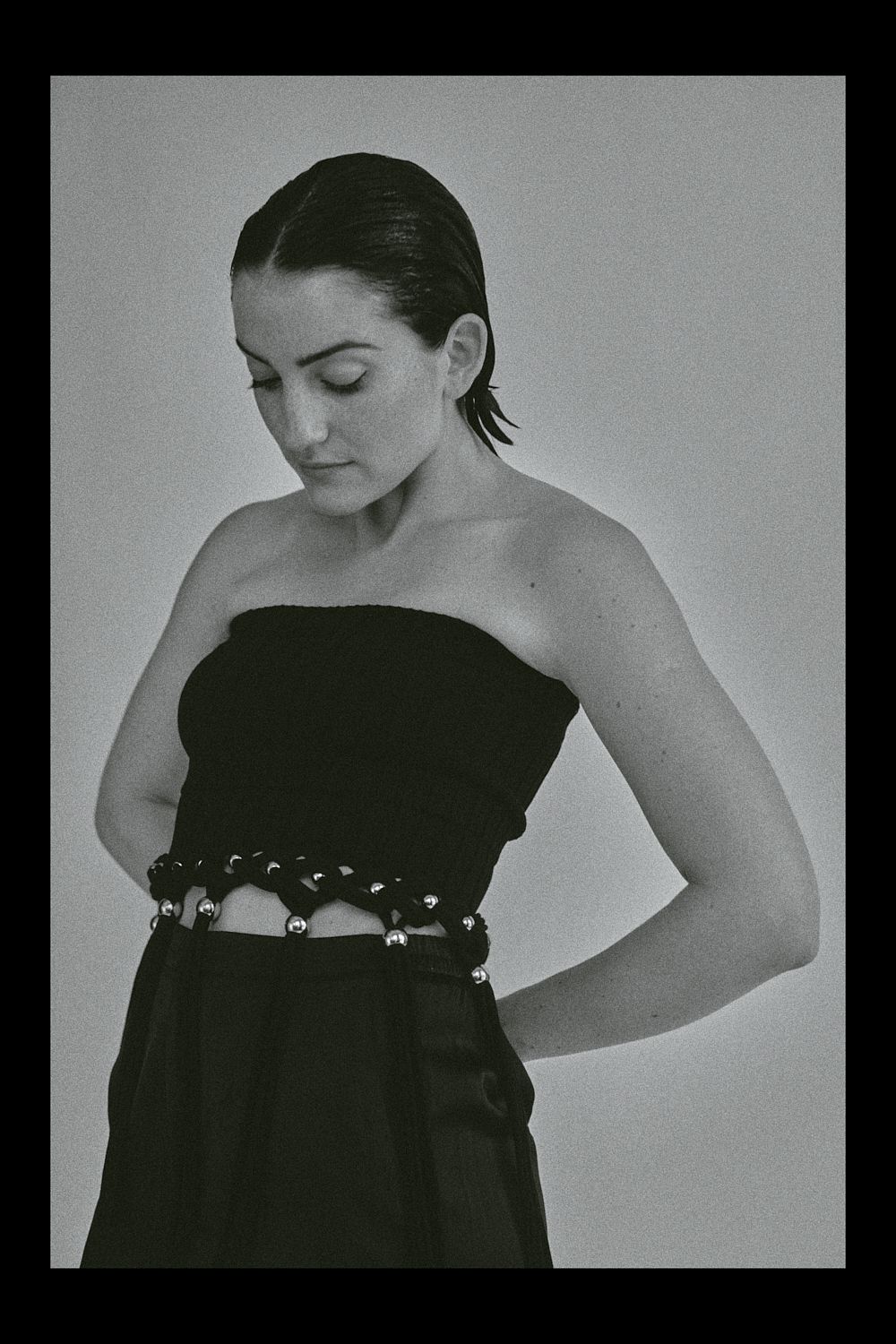
I feel like there’s so much I want to talk to you about, and I wanted to start, obviously, by talking about Normal People. I loved it. I’m such a huge fan of the book and I loved the adaptation that you guys did for television—it was so beautiful and authentic, and I wanted to really kind of dive into your portrayal of Peggy. She’s such an interesting character because I feel like as a viewer, you aren’t sure if you can trust her, but you’re drawn to her, which is I think the same way that Marianne feels about her. What was it about her that made you want to audition for the role?
Yeah! Well like you, I absolutely loved the book. I mean I’m a big fan of Sally [Rooney] generally, and then I mean when I heard the team involved, like I heard first that Lenny Abrahamson was directing. At the time I didn’t know Hettie [MacDonald] was as well, who’s also incredible, and I have also been a huge fan of hers for ages so I was like, This project! And I was like, This is gonna be amazing. So I was really, like I would have been so delighted to be any part in it. But yeah, I agree with everything you said. When I read the book I was really interested in Peggy because I think I’m generally interested in characters that are slightly… I’m interested in what makes people kind of behave badly, if you get me. I always think it’s quite interesting to have characters that aren’t necessarily likable or trustworthy, because I think it’s the same as it is in life, it usually comes from a place of insecurity. I think that if you feel really confident in yourself, you tend to be really easy company and really kind to other people. And, in the book, I find that when I was reading scenes with Peggy, I could never really tell when she was being fun-loving or manipulative. And, so, of course in my actor brain I had all these things behind her. She obviously comes from a very privileged background but I don’t know…that doesn’t necessarily mean that there’s security there, or that you have a lot of confidence in yourself.
So, for me, I feel like with Peggy a lot of it is quite performative. And I think that Marianne is so incredibly authentic, even when she’s in school, she’s so okay with being argumentative and she’s so okay with just being, and she never tries to fit in, so I feel like maybe that’s something that actually Peggy is drawn to in Marianne. I think something that draws Peggy to Marianne is that she’s like, You’re okay just being really authentic, whereas I feel like Peggy’s authenticity or sort of audacity is sometimes kind of performative or for shock value. I guess also for a character like Marianne, you know she has that kind of like semi self-destructive inclination, and I think that that’s really interesting because I think they both do. And obviously, they meet at a time in their life when they’ve gone through the school system into choosing their friends, and obviously I think early 20s, for everyone, is such a strange time because you’re figuring yourself out. And yeah, I think I just loved…I just find them so interesting because I think they’re so different, but I can so understand that kind of time in your life where you’re trying people on and trying yourself on, and so I find her [Peggy] really fascinating.
I think that’s one of the reasons why I found the show so appealing, and why it had this really intense response from viewers, because it feels real when you’re watching it. I think the way you all were able to portray these interactions and characters, like you’re saying, with these little nuances where Peggy doesn’t even know if she’s being authentic, so then therefore as a viewer you wouldn’t know if she is, it draws you into the world more. That must have been an interesting experience on set to make sure you were capturing that authenticity in every scene. Did you get lost in that sometimes when you were filming?
I think the way that Sally [Rooney] writes, she does that so beautifully anyway where like, there aren’t bad people and good people, you can see what makes people treat each other the way they do based on their own experiences or their own opinions of themselves and their own level of confidence or insecurity. So, I think that it’s just kind of a pleasure to play Sally’s characters because all of them have so much light and shade and so many kinds of…none of them are just straightforward bad or straightforward good, which is always way more interesting in our job! So, yeah, I think that’s the thing…I mean, like Fionn [O’Shea] and I remember at our second read through, we just looked at each other and we were like, Oh my god, I feel like we’re bad people in this! Because so many of the other characters are just so lovely and kind of, you know, vulnerable and endearing.
So, you have that thing of being like, when you go in on the first day like, I hope the crew don’t think I’m really manipulative and mean! [Laughs]. But, no. It was an incredibly close set and I think that’s something that Element as a production company cared about, and you know having Suzie the DOP who did the first block and Emer who was the script supervisor, and Daire, who was the first AD, they kind of created from the first day a really, really close set between crew and cast. And that was pre-mask! Because that was my last job pre-masks on set, so it was really nice. Like you really felt very safe there and there was just that encouragement to make them very much real people, which is just always so much more interesting to me. I mean, my favorite works are things that are just about people’s lives and the intricacies of that, like you said, and of characters and what makes relationships happen, what makes people drawn to each other.
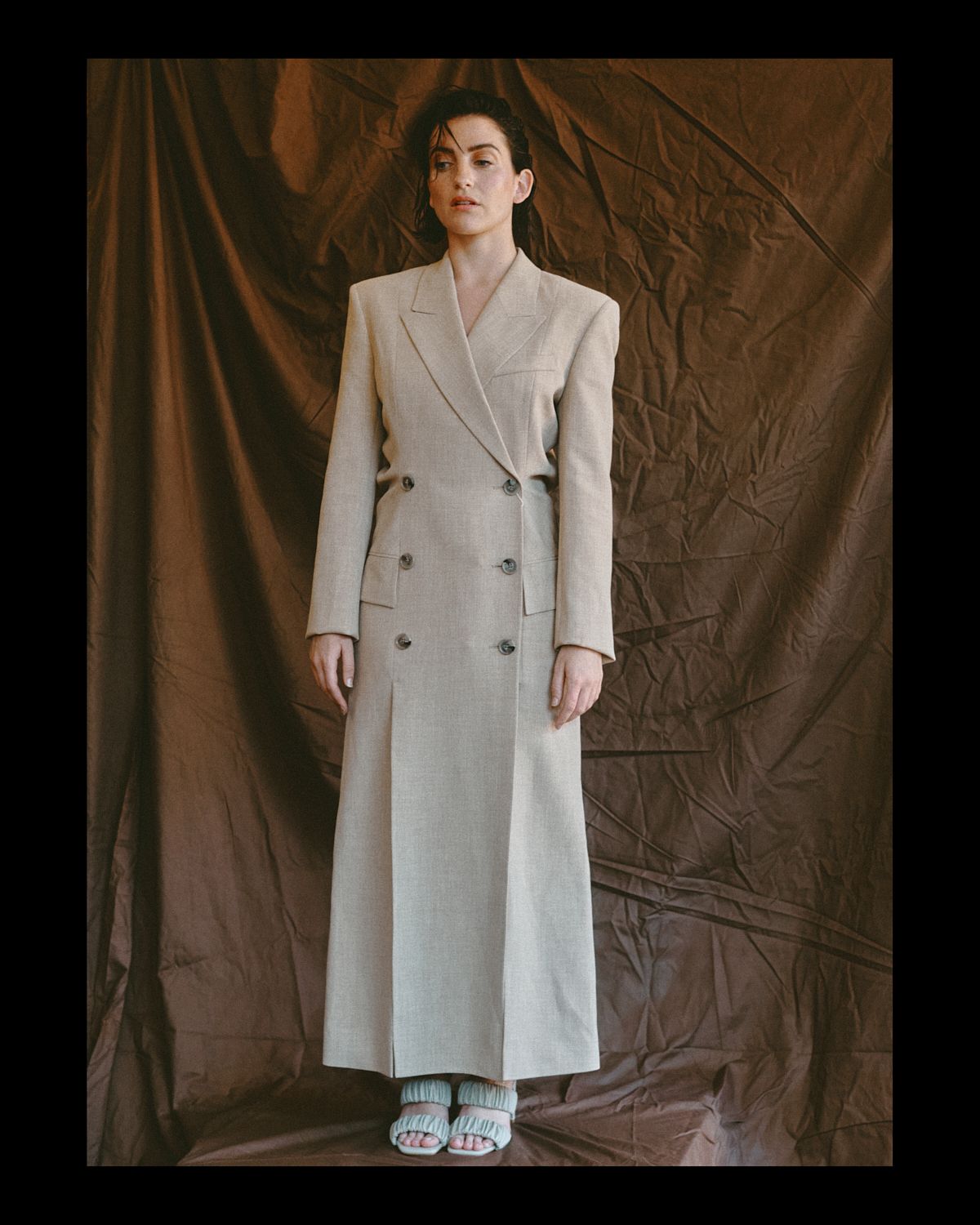
What are some of your favorite films and shows that capture that?
Over the past year I loved I May Destroy You. Have you seen that?
Yes! Yes. It was incredible.
I just think Michaela Coel is amazing.
She’s phenomenal!
I loved that, I thought it was so beautiful. I just thought it was so exciting and really, like we were talking about, so nuanced around the conversation around consent, but kind of just around everything. There were so many grey areas and so many things that I felt that it just really, really captured really, really well, so I loved that. And I just thought the performances were stunning. And then I love What We Do In The Shadows. [Laughs]. I’m such a Scorpio, I’m obsessed with that show, like, it’s embarrassing how many times I’ve watched it.
[Laughs] I do that all the time! I’m like, I could watch something new, or I could just watch this for the 200th time.
Exactly, exactly! So, I love that, which is ironic because I’m like, I just really love real life! And then I’m like, But these vampires!
But it’s so funny! Like the comedic timing and just everything, it’s so perfectly arranged. I don’t know how he [Taika Waititi] thinks of everything.
Me neither! And the cast is just perfect. I feel like they must do loads of improvising because it’s so funny. And then in terms of film I loved Babyteeth, Shannon Murphy’s film. I love indie films, and again, stuff that’s about humans. I loved Rocks, I don’t know if you saw that? It’s on Netflix! And I feel like A24 is getting it so right, for the past however many years.
I feel like I’m often surprised sometimes because I’ll start watching a movie and it’ll say it’s A24 and I’ll be like, I didn’t know this was them!
Literally! I’ve only watched Waves for the first time recently and I know it’s been out for awhile, but I was just like, Wow this is so good! And then sure enough I was like, Of course this is A24.
I definitely like their viewing experiences as well. I don’t like when you’re watching something and you feel like you’re being drawn out of it for any reason, whether it’s a performance or like a detail, or the plot or something. Because that’s the whole point, right? You want to be immersed in a new world—you want to be taken out of this current crazy madness that’s going on in the outside world.
Totally. I totally understand what you mean. And I imagine in your job that you’re really interested in people and I’m the same way, like I love things that are just about people’s everyday lives and getting to see the really personal, vulnerable moments that don’t really seem to have any really dramatic significance but are the things that completely affect your whole experience of the world, you know?
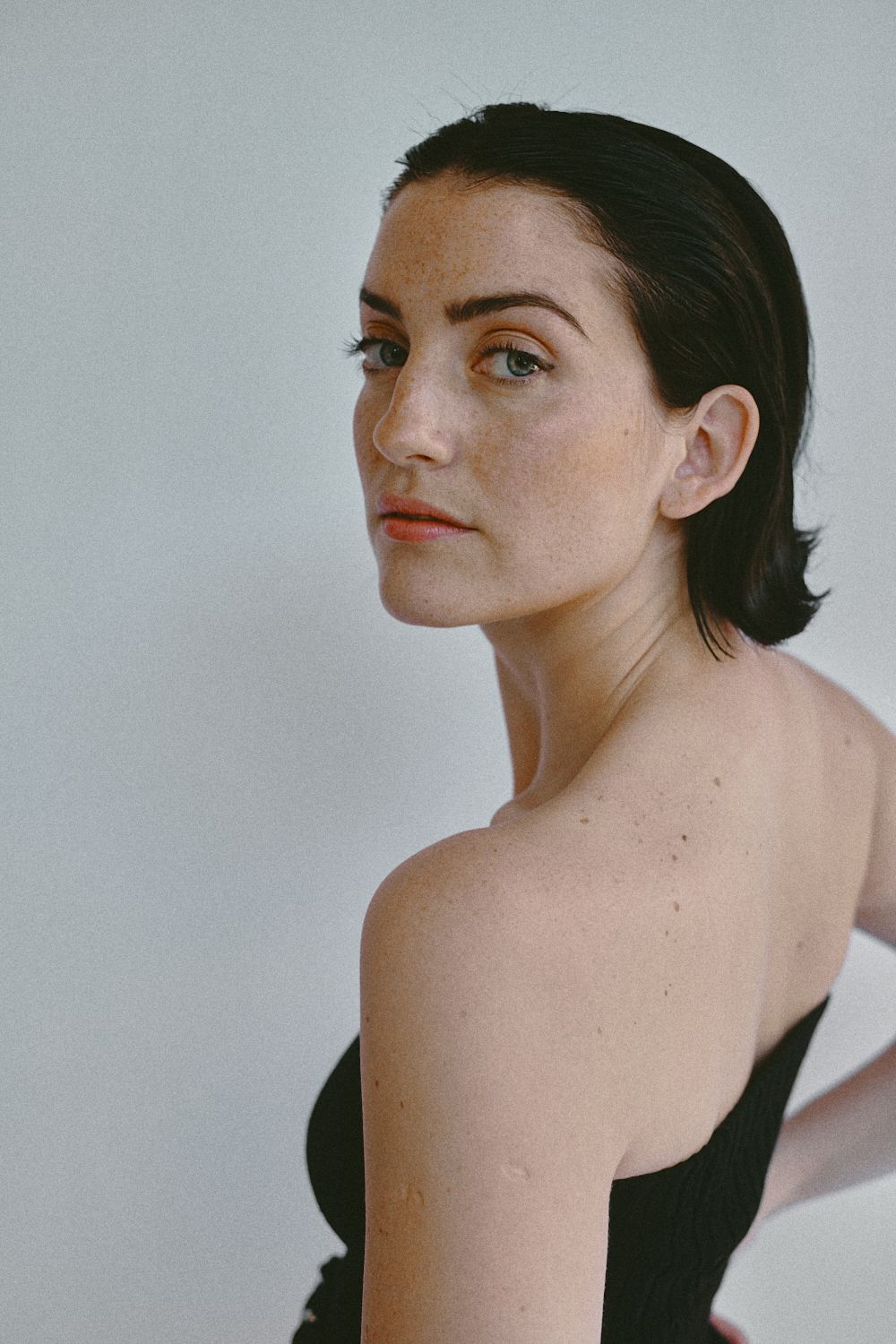
I love that, too. I’ve always considered myself to be like a wallflower, so I’m very quietly observational but I love understanding people and why they are the way they are. Or, like even what you were saying about Peggy and trying to understand where she’s coming from and what that’s rooted in, even in my daily life, I’m like that. And I’m sure it drives my friends insane when I’m like, Hold on a second, why did you just do that thing right now?
I’m the exact same! And I’m always trying not to be really intense but I’m like, And in terms of childhood trauma… [Laughs]. I’m fascinated by the cliche that your formative years really affect people and then the things that have made them overcome that, I find that fascinating.
[Laughs] I am the exact same way! I don’t like small talk. I don’t believe in small talk, I don’t want to ask you these little things, I’m like, Let’s unpack your childhood trauma.
Yes! And I feel like I kind of shut down when there’s small talk. I feel like I literally don’t know what to do and I’m just moving out of the space because I don’t know what to say.
I think that’s when I feel most socially awkward in any setting. I don’t like that…
“How was the journey in?!” [Laughs].
[Laughs]. I hate that! I’m always like, Let’s skip that, tell me about your relationship with your parents. It’s funny because you mentioned that you’re very Scorpio, and I’m a Cancer so I feel like I’m very emotional and I lean into that. When I try to fight against it, it doesn’t work.
We’re both water signs! That’s the thing. I feel like everyone thinks Scorpio’s thing is that they’re really standoffish when they’re actually just really intense and don’t like small talk [Laughs]. And we do that thing where we try to pretend we’re really cool but we’re actually like, Tell me about your deepest fears [laughs].
[Laughs]. Yes! My best friend in the entire world is a Scorpio, so we always tag each other in those memes on Instagram that are like Scorpio and Cancer at a party like, and it’s so true!
Yes! I’m a big believer in it, too.
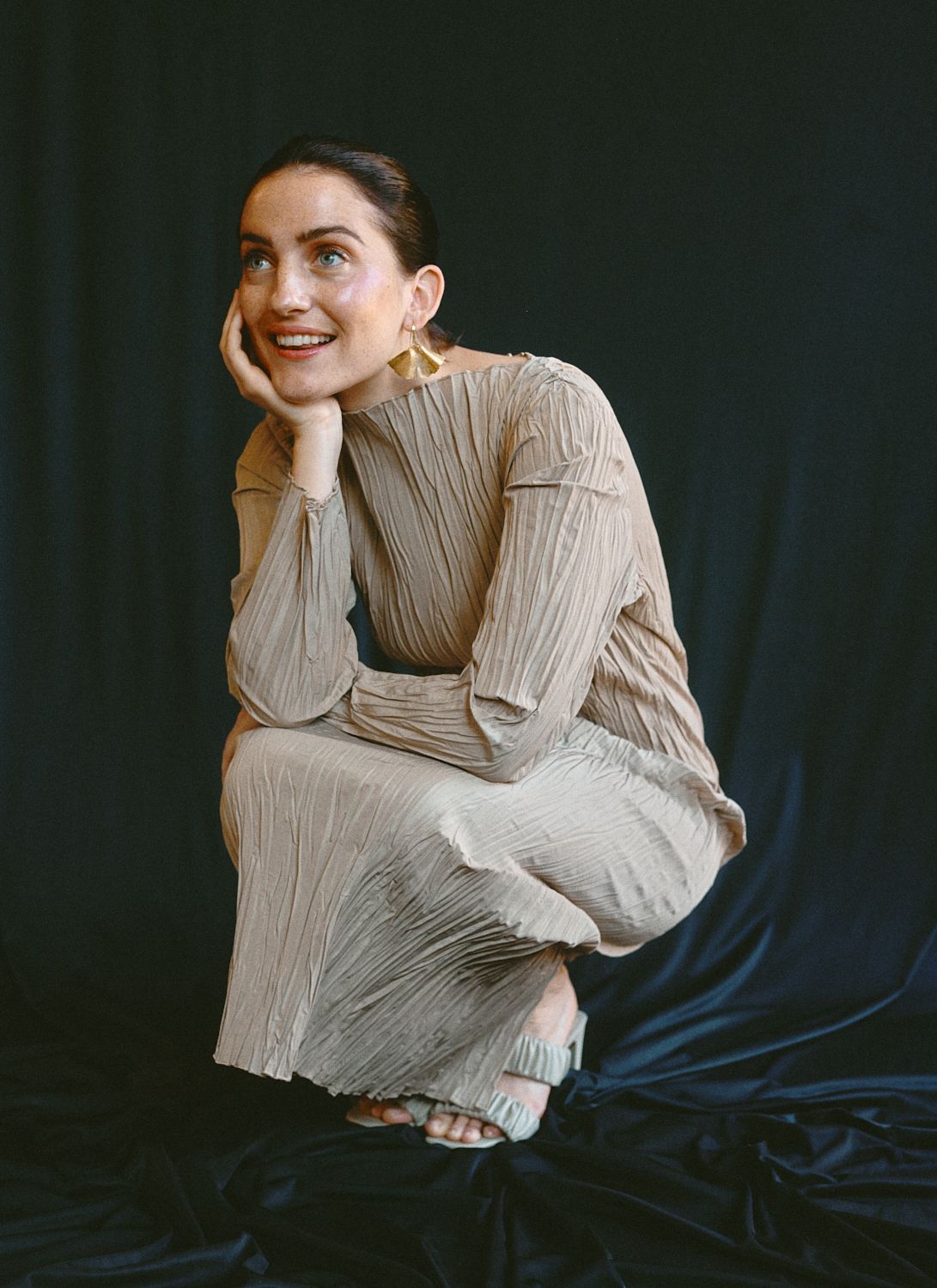
I think a lot of people think that it’s very woo-woo or whatever, but you can understand yourself so much better when you’re attuned to that, because then you’re understanding, like, I might emotionally feel like this because of these traits or these contributing factors in my personality.
And I don’t believe in the, like, Today this is going to happen. But I really think that when you read the traits it’s undeniably close. And that’s one thing, and the other is, if you do identify with the traits, then what’s the harm in trying to understand more about how you work or how the people around you work?
I think that just ties into how we are as people, because I very much want to understand myself, like, as a human being. Because I feel like…not that you’re reckless if you don’t, but I want to understand how I’m being perceived by other people, because what if somebody interpreted something that I did in a way in which it wasn’t intended? And I feel like, if you are self aware enough to understand these things happen and if you understand your emotional self, I think it helps you do that more effectively.
It’s so true! And I think it allows you the understanding that we are actually responsible for so much of our feelings and our experience of the world. Not that it has to be a shameful guilt thing of like, I feel that way and it’s my fault! But I think that’s such liberation if you can be like, that’s a trigger because you’re just built this way. Then, you can be like, I can let that go. And similarly, you can be like, I have a tendency to do that so maybe I can make sure to treat that person this way because that works for them. I think it’s really incredible for interactions.
Your interpersonal relationships are benefitted from that. I feel the exact same way. I won’t notice sometimes that I’ve come across a specific way but if it’s conveyed to me, like you said, I know moving forward when I’m interacting with someone that I need to phrase things differently. I think it’s better for everyone and it’s better for yourself as well, because you’re able to remove yourself from situations where you think, This doesn’t serve me or This doesn’t feel true to me.
I’m so glad that we’re finally in that place. I’m so glad our generation is really open to that and open to those conversations, because it’s nuts how different everyone’s experience of the world is. Not just circumstantially but in their mind. You always assume that people have roughly the same perspective as you, and then you realize it’s so incredibly different and that actually we have to be much more careful of each other and we have to look out for each other because everyone just has such a different headspace and view of the world.
I definitely feel like that. And I think that’s part of being a decent human being!
Definitely!
I wanted to ask you because you had mentioned being a big Sally Rooney fan, and I think her work is so massively appealing because she’s able to capture those interpersonal relationships where so much is not being communicated, especially I think in Normal People with Connell and Marianne, and you see the ripple effect that has. Like, in that scene with Peggy where she asks if they want to have a threesome, you see that lack of communication and how that ripples out and affects both of them, because neither of them in that moment can just be like, No, we don’t want this.
Totally! It was really nice because sometimes playing a smaller part on something you can feel a bit awkward because you’re very much there to serve the story of these two people, which I was so delighted to do, because I think the story of Connell and Marianne is amazing. But I found that Lenny was so brilliant at being really inclusive where we would sit down and discuss the landscape of their relationship in that moment so you were very much part of the conversation of like, what’s actually happening in the story we’re telling here, which is the story of Connell and Marianne. So, yeah with that scene it was really interesting because it leads to this conversation of, Well, we haven’t put a label on it and why haven’t we? And obviously it incites this panic in Connell of being like…I don’t really know how to communicate what I want and what I need here, you know?
And I think it’s really interesting because in that setting it seems like Marianne is far more able to mask it. If she has issues, she’s far more able to mask it, and I find that so fascinating because I feel like the assumption in history is that women are so much more emotional and more volatile, but actually, I think because of that assumption women in our generation fight quite hard against that stereotype. And we’ve ended up in this place where, I know a lot of my female friends, feel like we’re really unemotional and sometimes have trouble showing our real emotions. I love the way Sally’s female characters, they really show that really clearly and so beautifully. That subtly of being like, I feel this really intense emotion but I’m told that that’s a problem by society, so now I’m going to bury it so deep that it’s going to come out and manifest itself in completely other ways. And I just love that. I feel like I never identify with that assumption that women are far more emotional and tearful, and whatever. And of course we can be, but I think, for me, I totally don’t identify with that. I do identify as female, but I don’t identify with that assumption that we’re way more emotional.
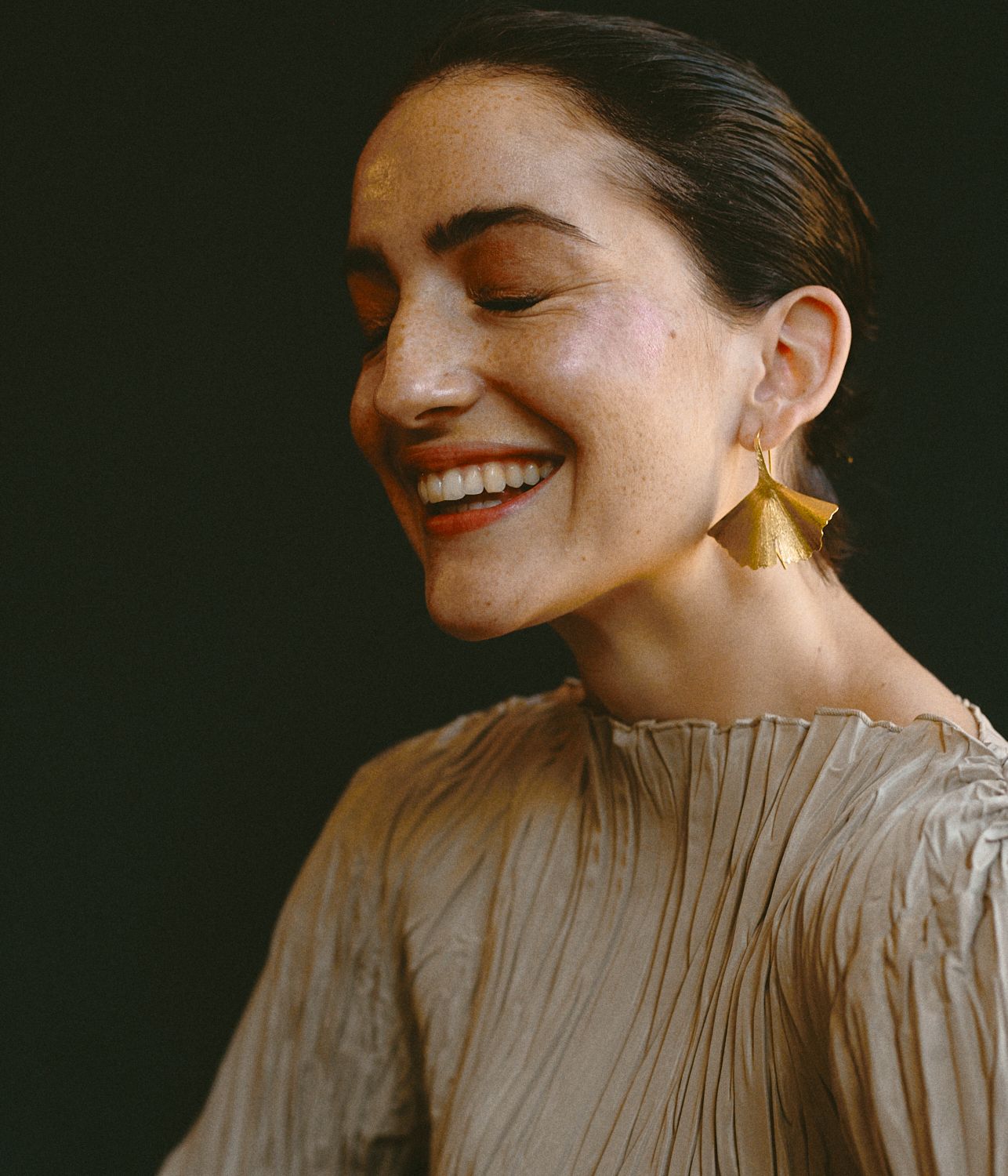
I completely agree. I live in a house with four guys and I am very frequently the least emotional of the group. [Laughs]. I’m always the one that’s like, Okay fellas, let’s take a deep breath, what’s going on?
[Laughs]. Yes! I completely agree! I love that thing, I think it was in one of Reese Witherspoon’s speeches where she’s like, What do we do next?! And I have never in my life heard a woman say that! Usually in circumstances of like, disaster or chaos, women are like, Okay, I’m just going into absolute turbo mode. Like, my mum, she’s this incredible, interesting, full of life, hilarious woman. And she’s a nurse, so then when I see her in her work setting, she’s like in the middle of chaos and she breaks into superpower mode, and I’m like, Holy shit! It’s the most level, on the ball thing. So I feel like, yeah, totally, often when women are in the company of men they’re much more level.
She’s obviously great at compartmentalizing everything! Especially within the last year, I’m sure it was even more chaotic with everything going on. And you have to, I think in those instances, that’s probably what women are best at and what we don’t get enough credit for, is being able to compartmentalize everything. Like, in those situations with my male roommates if they’re upset, I tuck whatever I’m feeling away and I’m just like, Let’s make some tea and talk about this.
That’s so true! Because it kind of feels like now, there’s this pressure on women to deny their stereotypically female parts. And it’s a complete generalization, because not all people who identify as female have them, but the parts that I feel are very typically female are superpowers. And they’re amazing! I feel like for a person of any gender, there are things we should be encouraging and celebrating if we have them. Like, what an amazing thing to be like, When they need to talk I make tea and I listen to them, and I want to look after people and I’m intuitive and I understand them. So, yeah, I just think we’re amazing. [Laughs].
[Laughs]. I completely agree! I think if you identify as female or male, or you identify as non-binary, whatever it is, those traits and qualities should be celebrated. I think when you attribute any negative connotation to those things that are “stereotypically female”, it isn’t good for anyone. There isn’t anything wrong with having emotions or showing your emotions, that’s what I always try to say in these situations. You have to honor the emotion you’re feeling in the moment, because if you fight against it it’s going to inevitably be worse than if you rode the wave of what you were feeling while you were feeling it.
100%. And it’s problematic on both fronts. It doesn’t help people who grow up with a male experience to be told, like, it’s problematic to be emotional. Thankfully, I think we’re moving toward a more conscious era.
Totally! I know we’ve wandered off topic [laughs], but you’ve been filming something new and I was wondering if you could talk about that a little bit?
I can’t talk about the project that I’m currently working on, but! I have a show Brassic coming out that I’m part of this season, and that’s really fun. Going back to my love of What We Do In The Shadows, it’s a sort of comedy/drama and it was so much fun to be part of. It’s very much an ensemble thing and it follows primarily Vinnie, Joseph Gilgun’s character, and him and his gang are kind of like….neighborhood criminals? [Laughs]. I don’t know if that’s the right word! But yeah, they’re kind of like local criminals, I guess. And it was just so, so much fun. We filmed it over winter as well so it was like in the middle of the pandemic when we got that incredibly lucky green light that the film industry could continue if there was testing and things like that. So, I guess it makes sense because we could go to work and be tested and it could be kind of a protected environment but then obviously with people being able to edit and those various bits from home, so, yeah. I felt so, so lucky because in such a bleak time we all got to go into work and have loads of fun together and make this really fun, energetic show. It was a ball.
That must have been an interesting contrast to Normal People where you’re in more of a tense environment to then transition into a comedy. Do you approach the role differently when it’s in a different genre?
Yeah, that’s really interesting! I don’t know if this was the right thing to do [laughs] but for me, I kind of approach things pretty similarly because for me, it should always just be real, do you know what I mean? That’s always my aim. Even when you’re watching something that’s like a big comedy, they may be in bizarre circumstances or be really big characters, but you believe them and if you don’t, you won’t watch it. It’s like, I watch the American The Office all the time and I watch that and I think it’s such beautiful character work. I know all of them so well! [Laughs]. And I think the cast of Brassic do that as well so beautifully. Like, it was honestly…it was pretty new to me and I was like, I just want to be a fly on the wall every day and watch them all because they’ve all created these really, really colorful, interesting, hilarious characters, but you completely believe them. You hang on every word. Like some of the Irish cast, like Bronagh Gallagher’s character is so funny and so different too, same with Tom Hanson’s character Cardi and Tommo, Ryan Sampson’s character. Literally all of them are so different to their characters but they feel like absolute studies in how to create a comedic character but still be so real. I guess I wanted to do what they did [laughs].
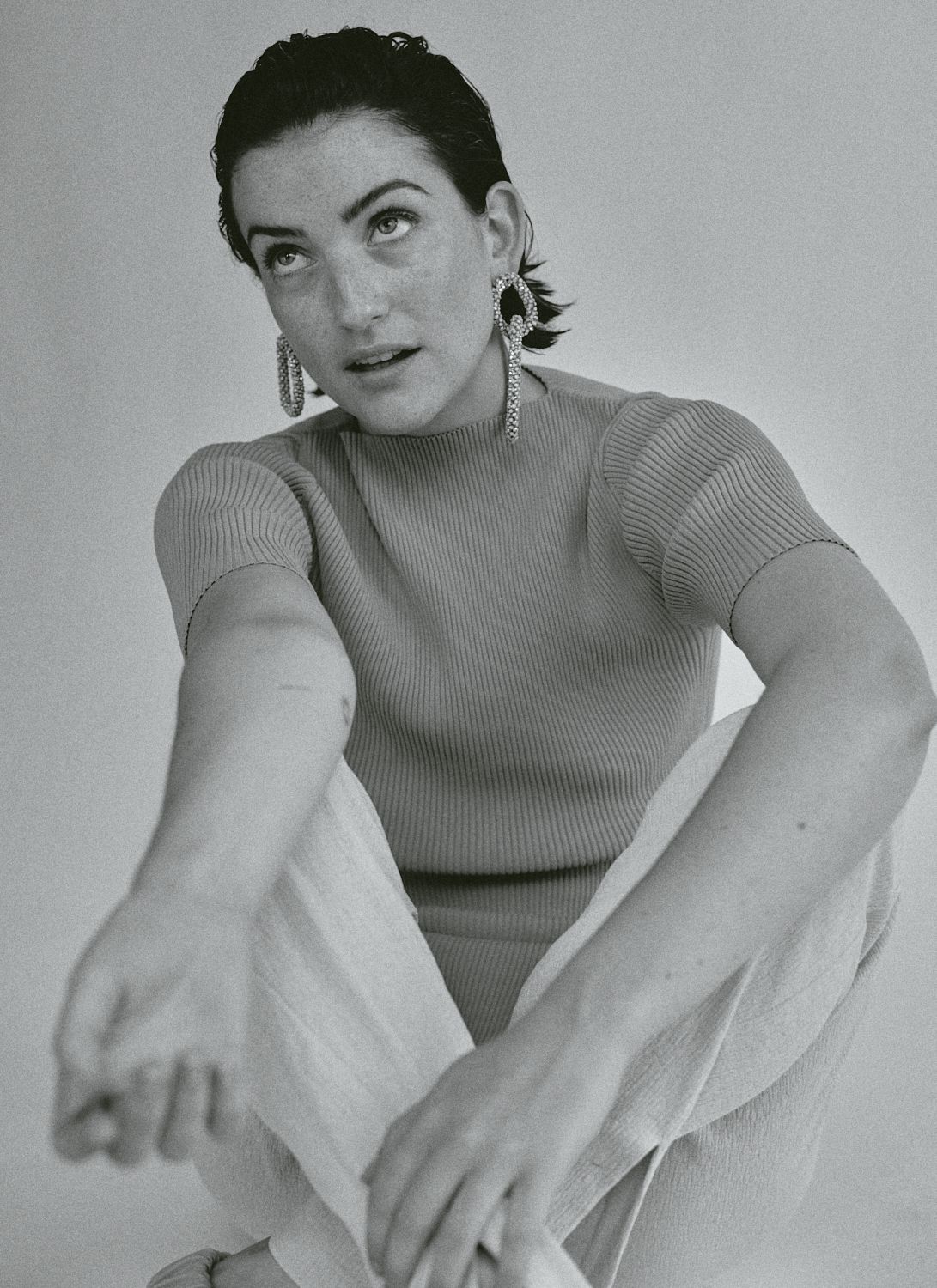
[Laughs] I’m sure you were successful in doing that! And you mentioned being such an observational person so I would imagine that must help with your work as well, right?
Totally! And I think we all laugh at absurdity. We all laugh at moments in life that are just ridiculous. And they can often happen during times where things are really hard, as well. I’m really thankful that I come from a family that really laughs. Everytime I go home I’m always like, You guys are so cool, you have such a sense of humour about the world! And it’s usually in the times that are bleakest that we end up having the funniest nights trying to make each other laugh at the situation. So, I think that’s in so much of comedy where it’s either this vulnerability or even misery. I think that comedy is such an amazing genre because it kind of lets you look at life, and it’s not to laugh it off and not acknowledge it, but I think it’s so unifying to go, Oh my God, that other person does that really weird thing that I do! Or whatever it is. It makes you feel less alone to watch comedy because you can be like, Oh I love that they’re a fuck-up, too! [Laughs].
[Laughs]. I completely feel like that, too. I’m always the one to crack a joke in tough situations to try to lighten the mood.
Especially at the moment! We have to find the light right now.
Absolutely! From a personal standpoint I wanted to ask you about your photography, because I love your photography so much. I’ve been following you on Instagram since you were on Normal People and you have such a beautiful eye for things. Is this something that you’ve always been interested in?
Oh, thank you! That’s so nice! To be honest, it actually almost came about as a happy accident really. I grew up, like my family are all pretty visually creative, and so they all kind of work in some form of art or design. Or like, my sister and my mum are in more caring professions but they still have a really good flare for visuals. So, I kind of realize now that I was really lucky because there were always conversations about…like not in a really cultured way, it wasn’t like we were talking about the classics around dinner at all, but there was always a real encouragement and craft. Like, my mum is really crafty and my dad is really into…probably I feel like in a way, my mum used to take me to the theatre when I was younger to kind of fringe, very small, less traditional theatre, and my dad was the one where photography came from. So, it’s nice to kind of be at a point where I have them both in my life! Because it’s like a bit of both of them. But he used to take photos a lot and do a lot of film stuff, and then I remember when my brother went to art college he found my dad’s projector and all of his slides and put them in and made this kind of exhibition of him drawing on slides and some of my dad’s old photos or slides from my mum’s house in Ireland from the 1950s to the 1970s.
And I remember at the time being like, This is so cool! And I loved it. So, I think that was a huge influence and I think it comes from the same place we spoke about, about just being interested in people. I love Larry Clark and Nan Goldin, people who photograph very intimate, kind of vulnerable parts of youth culture and all of its chaos, or queer culture, and normal working class families living their every day lives. So, Nan Goldin, Richard Billingham, and Larry Clark would be people who I look at their stuff a lot. And then I actually only started taking pictures because lots of my friends were looking for press stuff at the time when it was like shoots couldn’t really happen and if people were around or I lived near them, we could do socially distanced shoots outside. My friends kindly asked me to take their pictures when it was very much just like a hobby. And I ended up doing these shoots for really lovely publications!
That’s amazing! Your photographs of Paul Mescal were so beautiful, but I almost feel like you’re able to do that effectively because you understand the person because you’re friends with them. Does that make it easier to direct them, do you think?
Yeah, that’s a good question! I think it really helps to be friends with someone when you’re taking their picture because, I mean, sometimes it can be tricky. I remember I took Fionn and Lola’s [Petticrew] pictures, I had taken Paul’s photos so suddenly that it felt like there was this professional expectation [laughs]. I went from being an absolute mess to being like, Okay great guys, now we’re going to photograph some content [laughs]. But I think overall it really helps because for me, I thankfully know a bit about it from my family and stealing their knowledge, but I wouldn’t pretend that I had any kind of professional training. But for me, I like looking at what feels right and then I think it really helps when you know someone because you can look at the picture and go, There you are. You can see them in it. And for me, that’s all I’m really interested in. I love when you feel like someone has come across. So, I think definitely photographing friends is a huge help. And now I want to photograph all of my friends and my family [laughs].
[Laughs]. It must be nice to be able to have it in the moment, too, when you’re just hanging out and you can say, You looked really beautiful when you were laughing and I took this picture of you.
Yeah! It’s so, so true. It’s actually been really interesting being on that side of the camera because I know that I feel so self-conscious. In my job, that’s one thing, but if it’s in a photoshoot or even just if I’m out, I always pull a face. But photographing people made me realize that we all have our own opinion of when we look our best. But I think everyone looks their best when they’re so comfortable and not doing anything. So, it’s been really interesting taking pictures of people and realizing that. And some people are so amazing at that.
I think that comes from you as well. Because you’re creating an atmosphere where they can feel comfortable and vulnerable in front of the camera.
I think we all, especially now, we look at culture and we realize that our cameras are out so much, and if I look at my selfies I’m always making these faces. I do the things that are conventionally considered good looking, like I puff my lips out or whatever, and then I look back on it and I’m like, Why! You don’t look good! So, yeah, I think it’s funny that we’re all so familiar with cameras and yet it still has an affect on us all because culturally, people’s aesthetics, there’s such pressure on us all to look a certain way.
I completely agree. And I wanted to say that I was so excited to speak with you, and it’s been so wonderful.
Oh my God, thank you! I love your magazine! I remember Fionn and Lola had photos in it and when they said they were doing it I was like, Ahhhh! You guys do such cool stuff. I love the conversations you guys have with people. I always feel like they’re so interesting and I want to read them. I’m not reading it and feeling so sorry for the person for being asked that, I always feel like with 1883 I think the questions are really interesting.
I’m so glad that it comes across in the features! That’s something that all of us writers really care about so much.
Yeah, and it’s so clear!
Sky Original Brassic 3, all episodes available Wed 6 Oct on Sky Max and streaming service NOW.
Interview by Sam Cohen
Photography Eoin Greally
Styling Oisín Boyd




